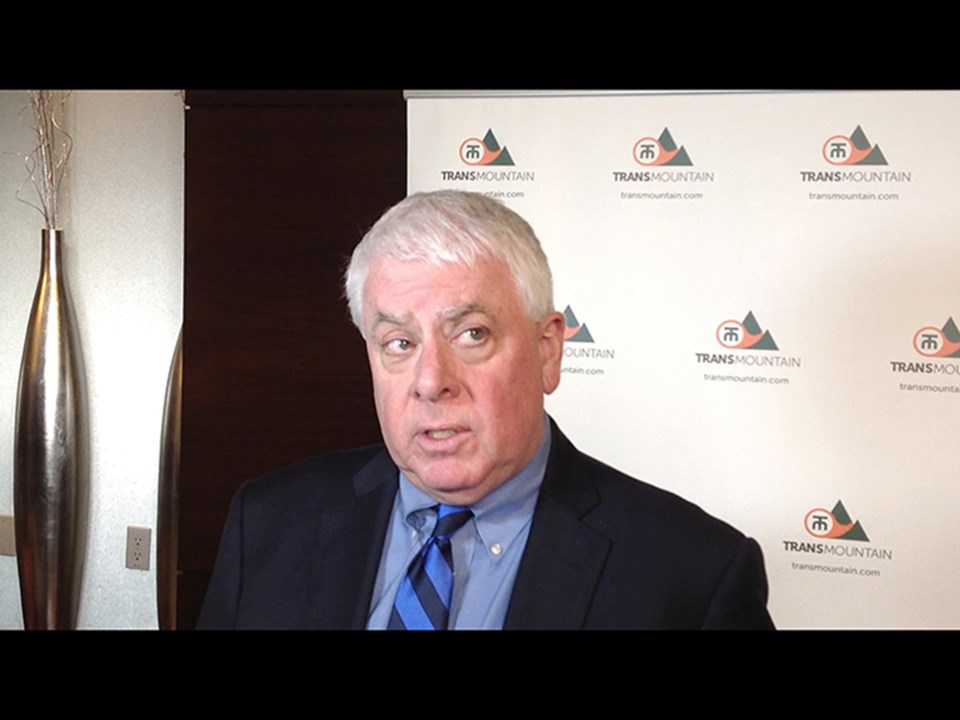The president of Kinder Morgan Canada is open to considering an SFU study that claims the company’s economic argument for the Trans Mountain pipeline exaggerates the job numbers while underestimating the cleanup costs of an oil spill.
Company president Ian Anderson said the figures Kinder Morgan used, which were refuted by SFU’s study, were conservative.
“Clearly the SFU study has used a different set of assumptions than our work has, and I would be most interested in looking at that to determine what’s the most reasonable,” Anderson said on a Wednesday conference call with reporters. “We think what we have done is fair and reasonable and in many respects conservative.”
Kinder Morgan suggests the pipeline expansion would provide 36,000 person-years of employment, but SFU’s study, released Monday, found that figure was more like 12,000.
While Kinder Morgan estimated a worst-case scenario oil spill would cost between $100 and $300 million to clean up, the SFU study suggested an urban spill would cost between $2 to $5 billion.
“The jobs created are nowhere near the number claimed by Kinder Morgan, and the costs are grossly underestimated when the risks of a major spill, particularly one occurring in the Vancouver area, are factored in using standard economic costs,” said Doug McArthur, director of SFU’s School of Public Policy, in a media release.
Anderson said he had not yet seen the report, but he anticipates someone will enter it as evidence in the National Energy Board hearing.
“If it introduces better assumptions than what we have, I’m open to considering the impact of those, but I just don’t know yet what it’s going to entail. And most certainly our views on that study will be public shortly,” Anderson said. “I don’t have a complete answer for you, but we will most certainly in due course.”
The NOW also talked to the Conference Board of Canada, the non-partisan think-tank that was responsible for Kinder Morgan’s numbers on person-years of employment.
Spokesperson Michael Burt explained that the SFU study did not use an input-output analysis and instead used figures from other pipeline projects (Northern Gateway and Energy East) and applied them to Trans Mountain to figure out the economic benefits from constructing and operating the pipeline.
“First, they take a multiplier from another project and apply it to Trans Mountain, which is in our opinion, not the proper way to do an economic analysis, and then they do further downward adjustments to that multiplier,” he said. “So that’s how you come up with their number, which is roughly a third of the number we came up with.”
The SFU study is not the first time Kinder Morgan’s economic arguments have come under fire. Marc Eliesen, former president of B.C. Hydro, was accepted as an intervenor for the NEB pipeline hearing, and he told the NOW last May that Kinder Morgan’s economic case was “fabricated and fictitious.”
Eliesen withdrew from the hearing altogether on Oct. 30, stating the NEB process was a “sham.”
For more comment from Burt, go to Jennifer Moreau's blog.



